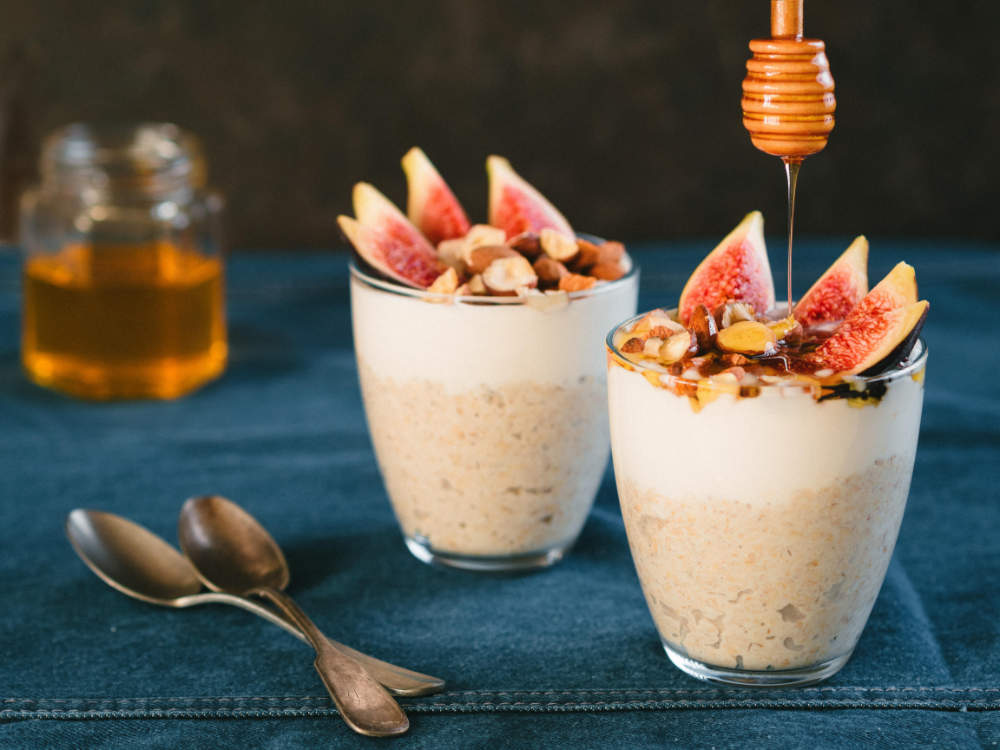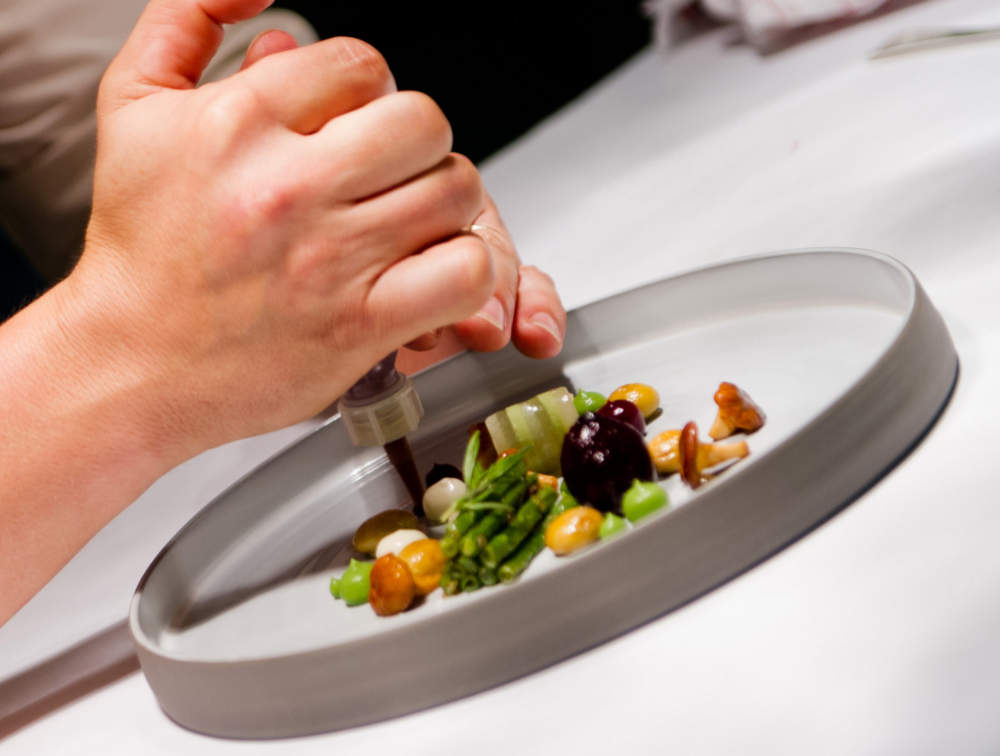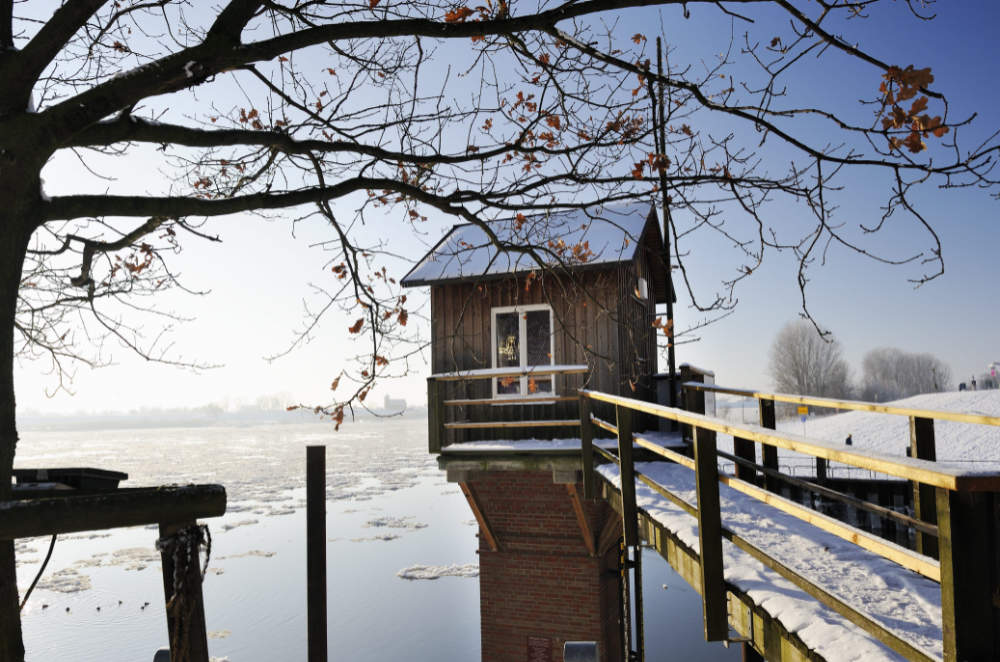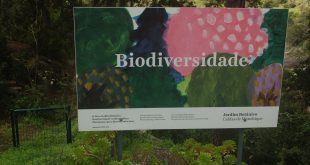Saturday, 9 of January 2021
At the smallest restaurant in the world
Dreams – will they come true or will they forever be an illusion? How about we take a look at our food and how it is produced. In 2021, this feature is dedicated to food. In this context, I have several requirements. There are several aspects that are important to me. First of all, when I have a meal away from my home, I want it to be at least as good as if I were eating at home. Otherwise, the travel, the expense of the car and the consequent emissions of CO2 into the atmosphere to reach the restaurant are not justified. And the meal itself must be as neutral in emissions as possible, with the minimal amount of travel, transportation, processing and conservation. And I’m including myself in that equation.
I imagine being in the smallest restaurant in the world. It has only has a table and two chairs. There could also be four or six chairs, but not more. I don’t mind what there is to eat. You don’t need to have a six-page menu and I like surprises, fresh things of the day and challenges to the cook’s creativity. The meal starts with purchases made directly from the producer, at the market or with the harvest in the garden. The food must be fresh and produced without any pesticides. My imaginary cook, cooks for two as well as for four or six and for celebrations (birthdays, weddings, etc.). Usually, all that is needed is to dish the food up, garnish it and serve two platefuls. Dreams come true. A table, two chairs, a knife, a fork, a spoon, and a cloth napkin. I like to start with soup or salad. It could be broccoli or carrots, sweet potatoes or leeks. I always end with a homemade dessert or a piece of fruit, some fruit salad, with grapes in the summer and pomegranate in the winter. These are just examples, ideas that worry me when I bother to leave my kitchen to go to a restaurant. I like to feel at home, which means that I don’t want to be just another customer, but rather I like to feel that they are cooking especially for me.
Whoever likes fresh air, plants and trees, goes to the forest and practises sports where there is no pollution. Those who like to eat well, in addition to their own home cooking, go to restaurants that guarantee food cooked by people who know how to balance cost and quality. I like to visit these culinary artisans who enjoy what they do, and I always go incognito. I always pay for my meal and share it with a friend or my partner. We eat out once a week but most of the time it’s not worth writing a review. Because people are informed about topics such as gluten, additives and the dangers of the microwave. Or they should be. Therefore, we will also always want to inspect the kitchen, the toilets and the bar. It’s not enough to have a beautiful view of the sea, from the top of the mountain as far as the horizon or to provide a peaceful place by the river … One must be impartial and incorruptible as a journalist. Anyone who invites me is left out. I always pay for my meal.
Quem gosta de ar puro planta árvores, vai até à floresta e pratica desporto onde não há poluição. Quem gosta de comer bem, para além da própria cozinha, frequenta restaurantes que garantem cozinhados feitos por quem sabe e uma troca justa entre o dinheiro e a qualidade. Gosto de ir visitar esses artesãos da arte culinária que gostam do que fazem, e fico sempre incógnito. Partilho por norma a minha refeição com um amigo ou com a minha parceira. Vamos comer fora uma vez por semana, mas na maior parte das vezes não vale a pena escrever uma crítica. Porque há quem esteja por dentro de temáticas como o glúten, os aditivos e os perigos do micro-ondas. Ou deveria estar. Por isso, também vamos sempre inspecionar a cozinha, as casas de banho e o bar. Não basta ter uma bela vista sobre o mar, do alto da montanha até ao horizonte, ou oferecer um local sossegado à beira rio…
Há que ser imparcial e incorruptível como jornalista. Quem me convidar fica de fora. Pago sempre a minha refeição.
In the smallest restaurant in the world, the cook always has time for us. She or he only cooks for her two customers. I told them that I no longer eat dead animals (meat), only very rarely a fish. The cook made suggestions for me. I like the varied flavours of vegetarian cuisine, from a colourful salad to a soup. I drink an organic wine from the local area and drink a lot of water. I don’t accept plastic bottles. And the wine must have an organic certificate. Glass bottles should be returnable. I love a good coffee or tea and a digestive produced locally to finish. Then, I would like to look at the rubbish bin in the kitchen. And today, what is the main course? Where can the smallest restaurant in the world be found? That is what we are going to reveal here next Saturday. Be prepared.
 Eco123 Revista da Economia e Ecologia
Eco123 Revista da Economia e Ecologia





